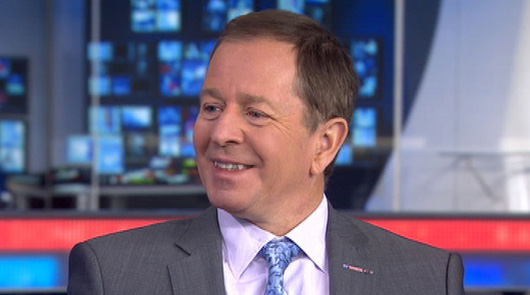
Sky Sports F1 commentator and veteran of 158 grand prix starts Martin Brundle was a guest during the Autosport International event on the weekend and was only too willing to share his thoughts on the reliance of F1 teams to favour pay drivers at the potential expense of superior talent.
The issue has attracted attention of late, partly due to Pastor Maldonado (and his lucrative Venezuelan oil backing) being recruited by the financially—how can we say this, stricken might be too harsh, yes, got it—perturbed, the financially perturbed Lotus F1 Team.
“The main problem is that they’ve got to stop it being so expensive to run the cars, so it stops the need for all this cash,” Brundle claimed.
“When a team like Lotus, the only one to really challenge Red Bull consistently last year, is short of money then something is fundamentally wrong.”
Although, Brundle later added that the term “pay driver” can be misleading.
“There’s no doubt that the pay drivers are creeping their way up the grid. But they’re still great racing drivers. Don’t think anybody who’s paid to be there is not a high-level racing driver,” he said.
“But it’s an awful expression. It’s a label that you just can’t get rid of. Niki Lauda makes the point that he had to borrow money to pay for his early drives in Formula 1.”
While Brundle says people shouldn’t get too caught up in the pay driver term, he added: “The balance is getting dangerously close to the pay drivers dominating… it’s disappointing when you see a driver like Paul di Resta getting booted out of F1 when you know that others are in because they’re bringing cash.
“That’s the bit I’m getting uncomfortable with.”
[Source: Autosport | Pic: Sky Sports]
One reply on “Brundle “getting uncomfortable” with pay drivers”
There have always been pay drivers in F1. Though I agree with Brundle that there is a reliance on them now. I hate to say it but Chilton is rubbish for one. Yes he finished every grand prix last season*, but there are clearly more talented drivers being shafted in favour of a quick capital injection to any given team. F1 is in a bad way and getting worse at an alarming rate.
* While he finished every grand prix, he was always between 2-6 laps down each race. This means that he didn’t actually finish any races. If you add up the total laps he failed to complete, it is clear that he had not finished the equivalent of between 1 – 1.5 races over the season.